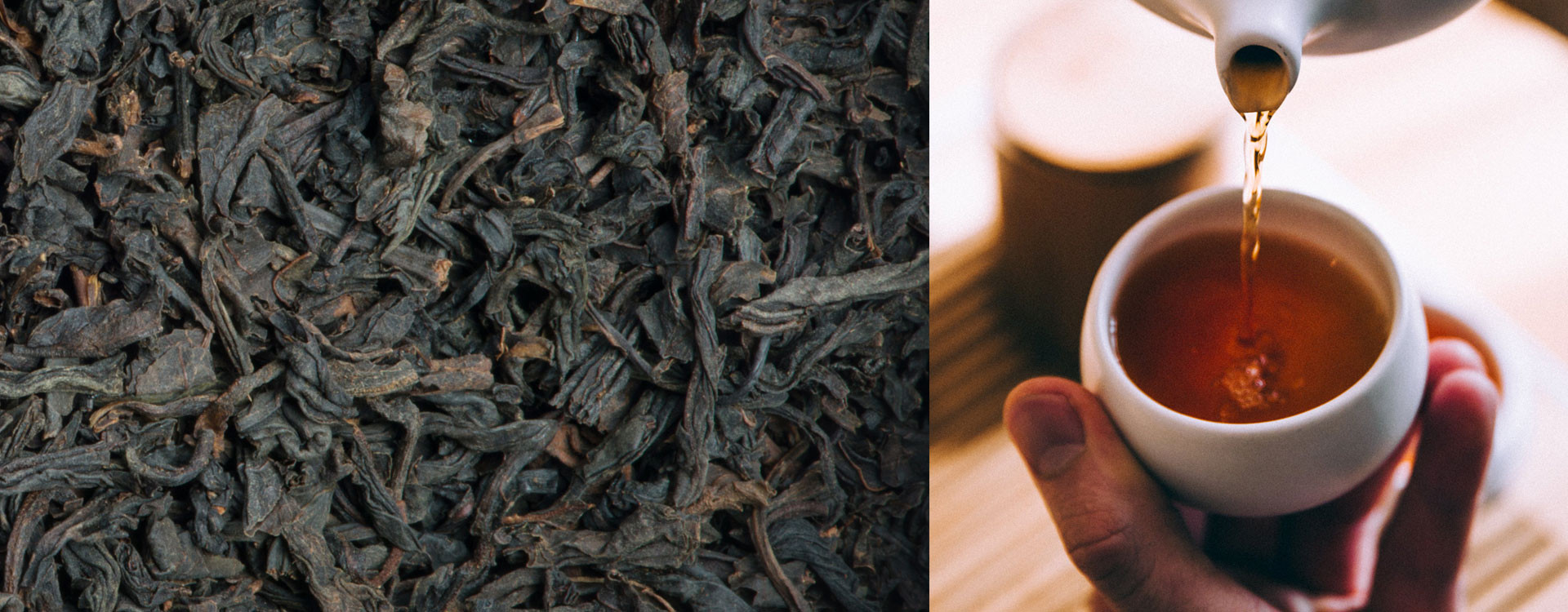Differences in taste between Zhengshan race and Xihu Longjing tea and matters needing attention for preservation of black tea and green tea
Traditionally, black tea has been the most popular tea drink outside China. After the discovery of black tea, it was the first time that the Portuguese introduced black tea to Europe. Members of the royal family loved it and soon the public discovered it. After Thomas Thomas Sullivan invented tea bags in 1908, demand for tea bags soared further. This is one of the most important commercial discoveries in the history of tea. But demand for green tea has gradually increased since 2010 and stabilized in 2017. Today, green tea is sold in the form of tea bags, loose leaf tea (mixed tea) and powdered tea (matcha). It is also used in many cosmetics and supermarket products. For tea drinkers, there is still a lot of confusion about the difference between black tea and green tea. Unfortunately, there is no direct and quick answer, because it really depends on what you are looking for. Black tea and green tea are different in many ways. The most obvious one is taste, but when you compare caffeine levels, sources, production methods and health benefits, they are also different. Fortunately, we will discuss every aspect in detail! So grab it. Tea Tree: Camellia every kind of tea is made from the leaves of the tea tree. So, is there any so-called "black tea tree" or "green tea tree"? The answer is yes and no. There are many kinds of tea trees, some are more suitable for green tea and some are more suitable for black tea. Therefore, the use of plants has an effect on the taste of tea. Black tea and green tea: processing / production methods and treatment steps are always important. As you read above, all teas are made from specific varieties of tea trees. It is the way of tea processing that makes black tea into black tea and green tea into green tea. The production of green tea follows the most basic production steps, namely: picking, drying (shade), frying. Finally, fry it in a pan, and the water in the tea will soon evaporate, so that the tea can stay alive and green. In other words, leaves rarely oxidize. On the other hand, black tea is a kind of completely oxidized tea. In the process of processing, the withering, crimping, oxidation and drying of leaves are more intense. As a result, the tea will eventually be darker in color and lower in water content.

Storage of black tea and green tea the difference in oxidation levels between black and green teas is important during storage. Because green tea is fresher and still contains a lot of water, it may continue to oxidize if exposed to air, light and humidity. Therefore, if you do not plan to eat green tea in the next 6 months, it is recommended that fresh green tea be sealed and stored in the refrigerator. Otherwise, just store it in a sealed jar in the cabinet. On the other hand, black tea is not easy to deteriorate. The leaves are so dry that they don't lose taste easily. If you put them in a jar and put them in a cupboard at room temperature, their taste will stay fresh for at least a year. The taste of black tea and green tea is as mentioned earlier, and the taste of both teas is greatly affected by the way they are processed. Fully oxidized black tea has the taste of honey, caramel and ripe fruit. They may also be smoked, although a strong smoky taste of campfire indicates shoddy black tea. On the other hand, green tea is characterized by its light taste. Very subtle green tea has the taste of green beans or citrus fruits, while more intense green tea is more roasted / nutty, sometimes very grassy and botanical. Low-quality green tea is usually stronger and more bitter.
Important Notice :
前街咖啡 FrontStreet Coffee has moved to new addredd:
FrontStreet Coffee Address: 315,Donghua East Road,GuangZhou
Tel:020 38364473
- Prev

Three sources of Oolong Tea where does Phoenix Dancong Tea come from as tribute tea?
Anxi Theory: Oolong Legend first of all, Anxi is based on the folktale of a tea farmer named Su long during the reign of Yongzheng in the Qing Dynasty. He is a tea farmer and hunting expert in Nanyan Village, Anxi County, Fujian Province. Because of his long outdoor activities every day, he is very strong and his skin is tanned. Therefore, the villagers called him Oolong.
- Next

Black tea history: which is the first kind of black tea in the world? Which kind of black tea was introduced into the western world?
In the early days of tea, the production of tea was very simple, picking, drying and / or roasting it. But in the Ming Dynasty, it was noticed that tea could actually wither and oxidize. This made the taste of the tea more intense, and the black tea was discovered. No one knows for sure who first discovered black tea. With many discoveries.
Related
- Is Dirty the cold version of Australian White? What is the difference between dirty coffee/decent coffee and Australian white espresso?
- Relationship between brewing time and coffee extraction parameters How to make the brewing time fall to 2 minutes?
- Got entangled?! Lucky opens a new store, Mixue Ice City, and pursues it as a neighbor!
- How long is the shelf life of high-quality hand-brewed hanging ear coffee? Why is the taste period of hanging ear coffee ground into powder only one month?
- Why does hand-brewed espresso smell good but taste bitter? Is the flavor of high-quality hand-brewed coffee aroma or taste?
- Special treatment? COSTA's China business was evaluated separately!
- Match with Xi Tea?! Lucky will launch the new "Snow Cheese Grapes"
- What is the recommended proportion of water temperature and grinding time for hand-flushing Huakui coffee beans? What parameters should be used for cold extraction and cold brewing hand-brewed Huakui coffee?
- Share the most detailed golden formula for cold extract coffee making on the whole network! What proportion of ground is used to make cold coffee brewed for several hours?
- What are the advantages of segmented water injection for hand-brewed coffee? How many stages should I fill the water when making coffee and what is the best time for grinding the water temperature?

